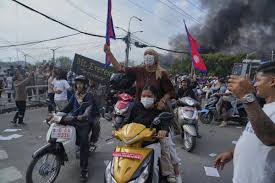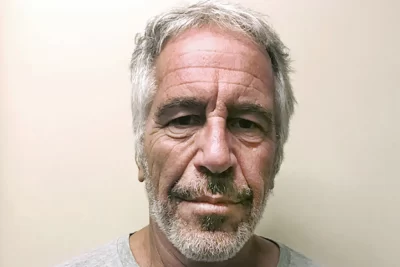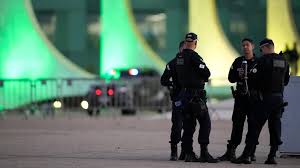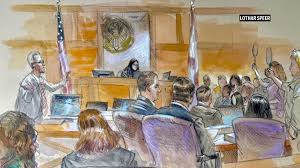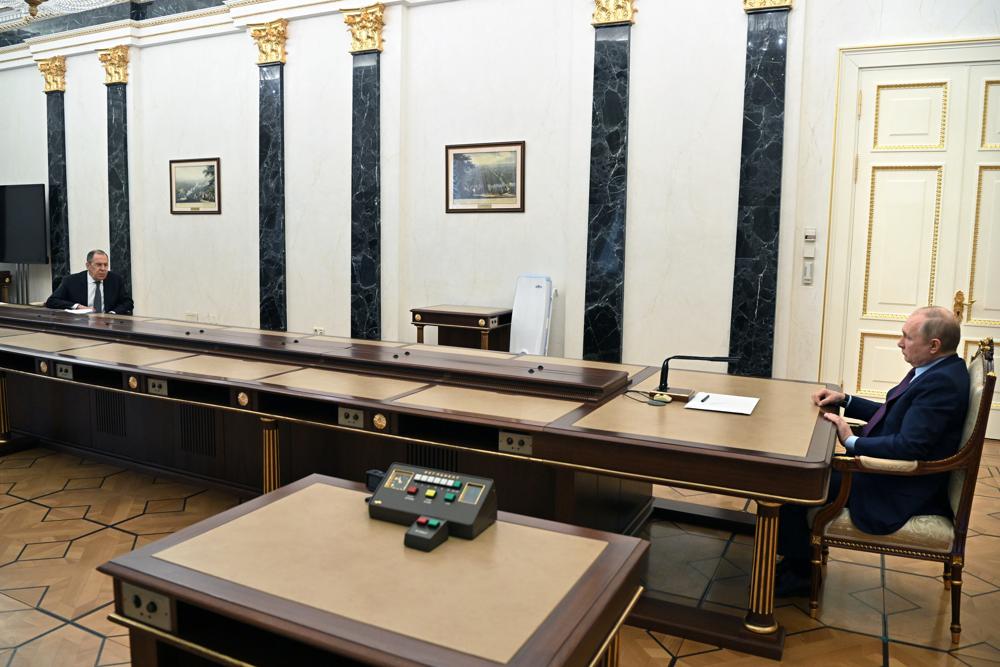
Questions remain about Russian President Vladimir Putin’s intentions, however. And countries are evacuating diplomats and on alert for possible imminent war amid the worst East-West tensions since the Cold War.
On a last-ditch diplomatic trip, Germany’s chancellor said there are “no sensible reasons” for the buildup of more than 130,000 Russian troops on Ukraine’s borders to the north, south and east, and he urged more dialogue. Britain’s prime minister said Europe is “on the edge of a precipice” — but added, “there is still time for President Putin to step back.”
Despite warnings from Washington, London and elsewhere that Russian troops could move on Ukraine as soon as Wednesday, Monday’s meeting between Putin and Foreign Minister Sergey Lavrov suggested otherwise.
At the session with Putin, Lavrov argued that Moscow should hold more talks with the U.S. and its allies despite their refusal to consider Russia’s main security demands.
Moscow, which denies it has any plans to invade Ukraine, wants Western guarantees that NATO won’t allow Ukraine and other former Soviet countries to join as members. It also wants the alliance to halt weapons deployments to Ukraine and roll back its forces from Eastern Europe — demands flatly rejected by the West.
The talks “can’t go on indefinitely, but I would suggest to continue and expand them at this stage,” Lavrov said, noting that Washington has offered to conduct dialogue on limits for missile deployments in Europe, restrictions on military drills and other confidence-building measures. Lavrov said possibilities for talks “are far from being exhausted.”
His comments, at an appearance orchestrated for TV cameras, seemed designed to send a message to the world about Putin’s own position: namely, that hopes for a diplomatic solution aren’t yet dead.
Putin noted the West could try to draw Russia into “endless talks” and questioned whether there is still a chance to reach agreement. Lavrov replied that his ministry wouldn’t allow the U.S. and its allies to stonewall Russia’s main requests.
In a phone call Sunday, U.S. President Joe Biden and Ukrainian President Volodymyr Zelenskyy agreed to keep pushing both deterrence and diplomacy. Zelenskyy’s office also quoted him suggesting a quick Biden visit would help — a possibility that was not mentioned in the White House summary of the call. Such a visit would be unlikely as the U.S. is now operating with a skeleton diplomatic staff in Kyiv.
Ukrainian security and defense council chief Oleksiy Danilov downplayed the threat of invasion but warned of the risk of “internal destabilization” by unspecified forces.
“Today we do not see that a large-scale offensive by the Russian Federation can take place either on (Feb.) 16th or the 17th,” he told reporters after meeting lawmakers. “We are aware of the risks that exist in the territory of our country. But the situation is absolutely under control.”

